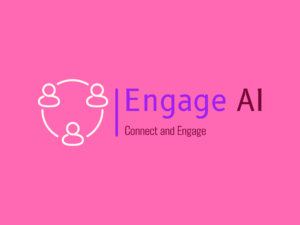Despite repulsion from certain fragments of society, the majority welcomed AI with open arms—especially at workplaces.
However, things have moved on to another level, and AI is playing a very prominent role in all professional and creative aspects—including the job market and hiring process.
The impact and the response to that impact, as compared to other industries, were similar until the industry embraced the idea of having AI interviews.
Yes, AI is doing one-on-one interviews with job applicants. Crazy, right?
Well, this blog will explore the riling-up debate about the idea of having a bot interviewing a human and determining their livelihood.
We’ll explore both sides of the argument, examining the potential benefits and drawbacks of AI interviews.
How Do AI Interviews Work
AI interviews heavily rely on computer algorithms to assess candidates at various stages of the screening process and evaluate if they’re the right fit for the job.
There are two primary formats:
Video Interviews with AI Analysis
The organization asks the candidates to send a recorded interview answering specific questions or conducts a live video interview of them.
These are then provided to software that analyzes the candidate’s responses. The AI assesses factors like speech patterns, facial expressions, and word choice to evaluate fit for the role.
Conversational HR Chatbots
Another way of doing this involves using AI chatbots to conduct text-based interviews—asking the candidates a series of questions and assigning them different tasks. Companies use these for initial screening to minimize human intervention.
The Benefits of AI Interviews
Though previously seemed unachievable, many companies are making it a standard practice. This shift has made people question if AI interviews are really a helpful innovation or a cold and impersonal approach that hinders genuine human connection.
Despite the debate, there is a set of advantages that AI interviews bring to the table (pun intended), such as:
- AI interviews offer significant efficiency gains.
- AI frees up recruiters’ time to focus on promising candidates.
- AI can mitigate the influence of unconscious bias during interviews.
AI achieves these benefits by automating the initial screening stages and relying on objective criteria programmed into the algorithms.
The Drawbacks of AI Interviews
While AI saves time and cuts down bias, some people consider AI interviews to be a double-edged sword despite their sophistication and evolution.
Efficiency vs. Accuracy
The reason why we mostly tilt toward AI is its ability to process gigantic amounts of data from countless sources—in this case, numerous candidates—all at the same time. So the screening process becomes lightning fast as compared to more traditional methods.
But, it’s a tried and tested notion that AI’s efficiency does come at the cost of potentially sacrificing accuracy—and rightfully so!
A human interview gives the organization to assess a candidate’s judgement, critical thinking, intuition, and problem-solving skills through the conversion—something that AI is still light years behind on.
Moreover, AI trained on biased data can perpetuate discriminatory hiring practices. If the algorithms prioritize specific keywords or communication styles associated with a certain demographic, qualified candidates from diverse backgrounds could be unfairly disadvantaged.
Human vs. Machine
Despite all the advancements and progress, AI interviews are still highly impersonal in nature and could trigger anxiety for job seekers.
That’s counterproductive because you want the applicants to feel their best and confident so they can give their 100% during the interview. Moreover, unlike face-to-face interaction, AI interviews lose the human touch that allows rapport building and evaluating a candidate’s cultural fit within the organization.
Also, AI focuses on evaluating a candidate on the basis of pre-programmed criteria—overlooking soft skills like teamwork, communication, and adaptability.
The impersonal nature of AI interviews can be anxiety-inducing for job seekers. Unlike face-to-face interaction, AI interviews lack the human element that allows for rapport building and gauging a candidate’s cultural fit within the company. Additionally, AI’s focus on analyzing pre-programmed criteria may overlook crucial soft skills like teamwork, communication, and adaptability that are essential for many roles.
Use AI For Other Recruitment Functions
It’s going to take some to see how AI interviews play out.
However, you can still deploy AI in the recruitment process and make it more efficient, speedy, and accurate—without disrupting the human element interviews bring.
Using an AI tool like Engage AI can be helpful.
It’s a modern recruiting software powered by AI that streamlines your hiring process from start to finish.
Helping with candidate sourcing, resume screening, and engagement, Engage AI can streamline your hiring process in no time.


